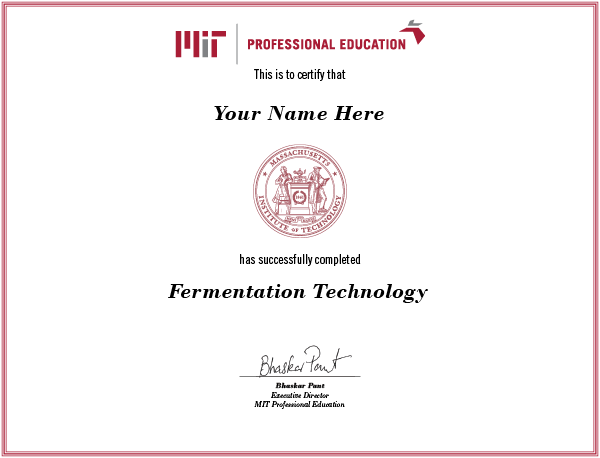Delve into the latest in biological and biochemical technology, with an emphasis on biological systems with industrial practices. The longest-running course in the MIT Professional Education catalog, this popular program reviews fundamentals and provides an up-to-date account of current industry knowledge. Alongside accomplished peers, you’ll acquire the tools you need to improve existing biological manufacturing systems or design new ones for downstream processes.
THIS COURSE MAY BE TAKEN INDIVIDUALLY OR AS part of THE PROFESSIONAL CERTIFICATE PROGRAM IN BIOTECHNOLOGY & LIFE SCIENCES.
The type of content you will learn in this course, whether it's a foundational understanding of the subject, the hottest trends and developments in the field, or suggested practical applications for industry.
How the course is taught, from traditional classroom lectures and riveting discussions to group projects to engaging and interactive simulations and exercises with your peers.
What level of expertise and familiarity the material in this course assumes you have. The greater the amount of introductory material taught in the course, the less you will need to be familiar with when you attend.



